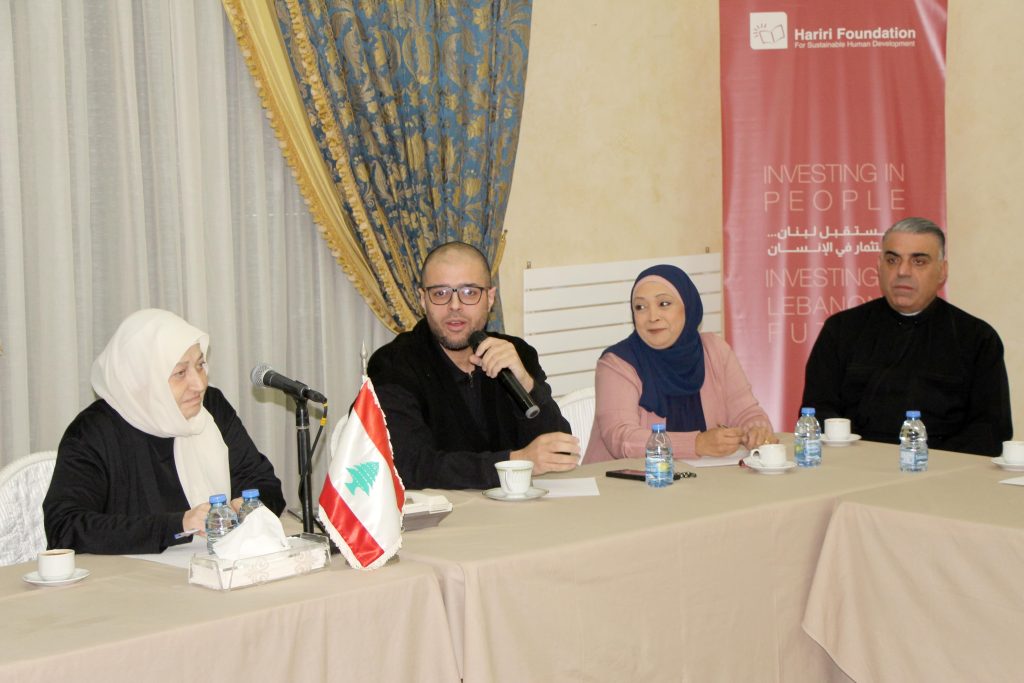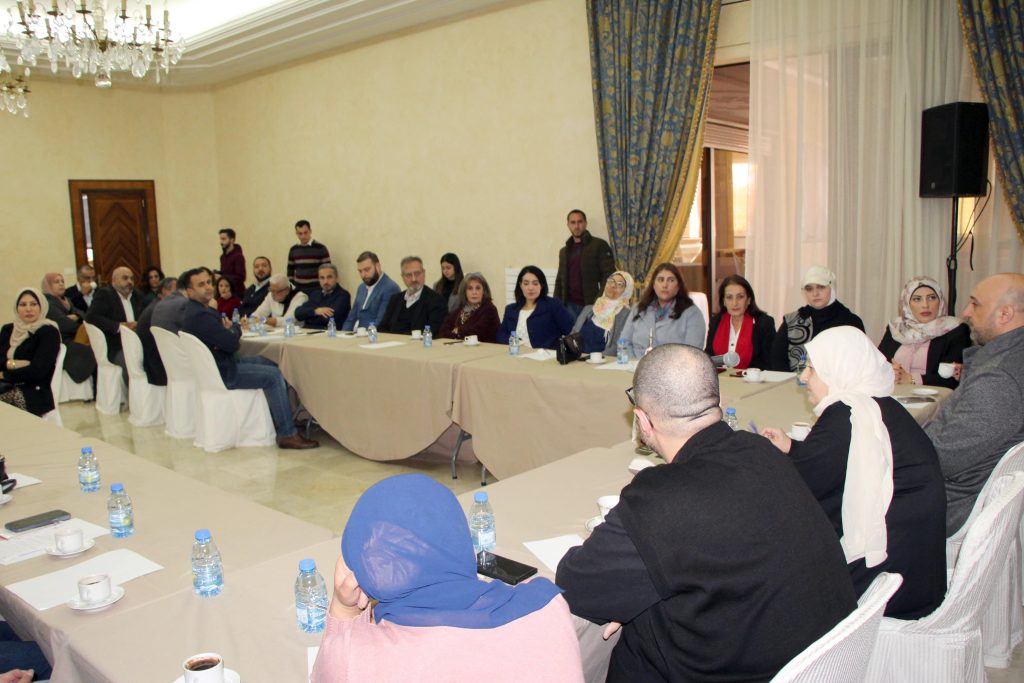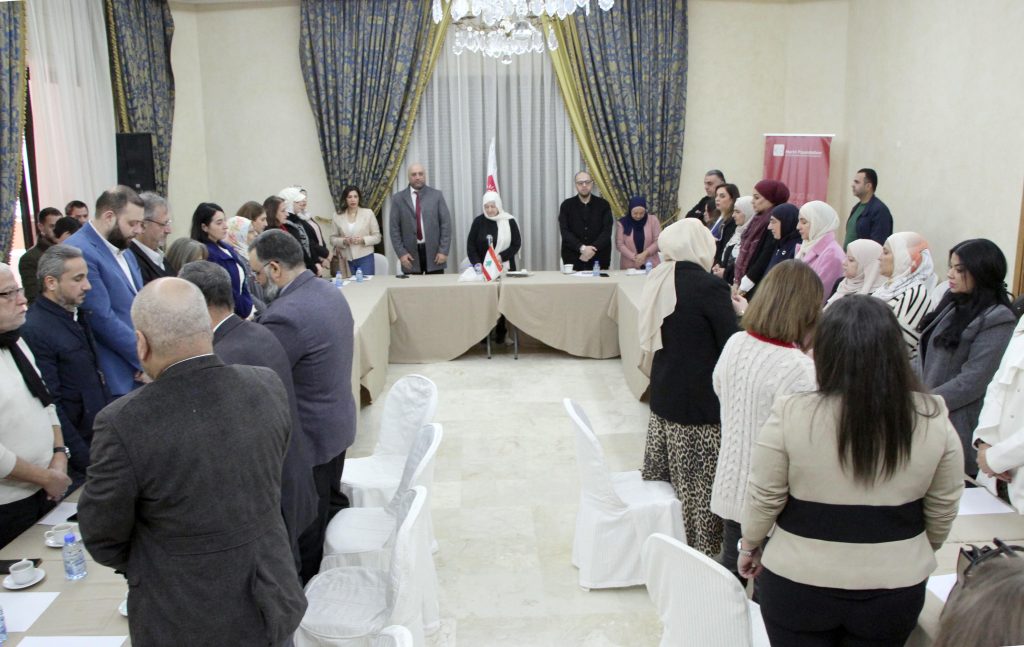The School Network for Saida and Neighboring Towns to Resume In-Person Education
Date: November 30, 2024
A consultative meeting was held on Monday at the Majdalyon Residence at the invitation of Mrs. Bahia Hariri, President of the Hariri Foundation. The meeting brought together school directors from the School Network for Saida and Neighboring Towns to discuss the return to in-person education and address the specific needs of public schools, many of which have been used as collective shelters. The goal was to assess the schools’ readiness to welcome back students.

Among those in attendance were Mrs. Haifa Azam, representative of the Head of the Education Directorate in the South, Mr. Ahmad Saleh; Mr. Mahmoud Zidan, Director of Education at UNRWA in the Saida region; Dr. Osama Al-Arnaout, General Coordinator of the School Network for Saida and Neighboring Towns; as well as school directors from public, private, and UNRWA schools. Also present were Ms. Mira Maroun, representative of the School Network Coordinator for Tyre and Neighboring Towns, and Mr. Ahmad Kassab from the Hariri Foundation.
Setting the Path
The meeting began with a moment of silence to honor the directors, teachers, and students who lost their lives during the recent Israeli aggression on Lebanon.
In her opening remarks, Mrs. Hariri outlined the purpose of the gathering: “The aim is to discuss the return to in-person education and ensure synchronization between private and public schools, especially as the latter have been used as shelters and require additional time to prepare. We seek to hear your assessment on your schools’ infrastructure, maintenance needs, and the status of teaching staff. Our priority is educational equity – to ensure that both public and private schools are on equal footing and to offer support where necessary—either directly or through coordination with the Ministry of Education, which has its own plan for the public education sector”.
Several public-school directors shared updates on their schools’ conditions, highlighting the need for repairs, rehabilitation, or additional teaching staff. The group also discussed the timeline for the return to in-person education. It was decided that private schools would resume classes on Monday, December 2, 2024, while public schools would follow on Monday, December 9, 2024, in alignment with the Ministry’s schedule (four days a week). Until then, remote learning will continue in public schools, alongside the completion of student registrations.

A decision was made to compile a comprehensive report detailing the maintenance needs, equipment shortages, and staffing requirements of public schools. This report will be submitted to the Ministry of Education for further action, with Mrs. Hariri overseeing the follow-up. In this regard, Mrs. Hariri contacted the Ministry’s Director-General, Mr. Imad Ashqar, by phone.
The meeting also explored the broader impact of the war on the educational community—on directors, teachers, students, and their families—both from a human and psychological perspective. Attendees discussed the need for psychological support workshops for both students and teachers across the public and private sectors.

School Network for Tyre
Ms. Mira Maroun, representing the School Network for Tyre and Neighboring Towns, spoke about the extensive damage to educational institutions in the region due to the Israeli aggression, noting its severe impact on students, parents, teachers, and school administrations. In light of this, Mrs. Hariri proposed organizing a special meeting in Tyre to address the challenges facing schools in the region. The date and agenda for this meeting will be determined after coordinating with the network.